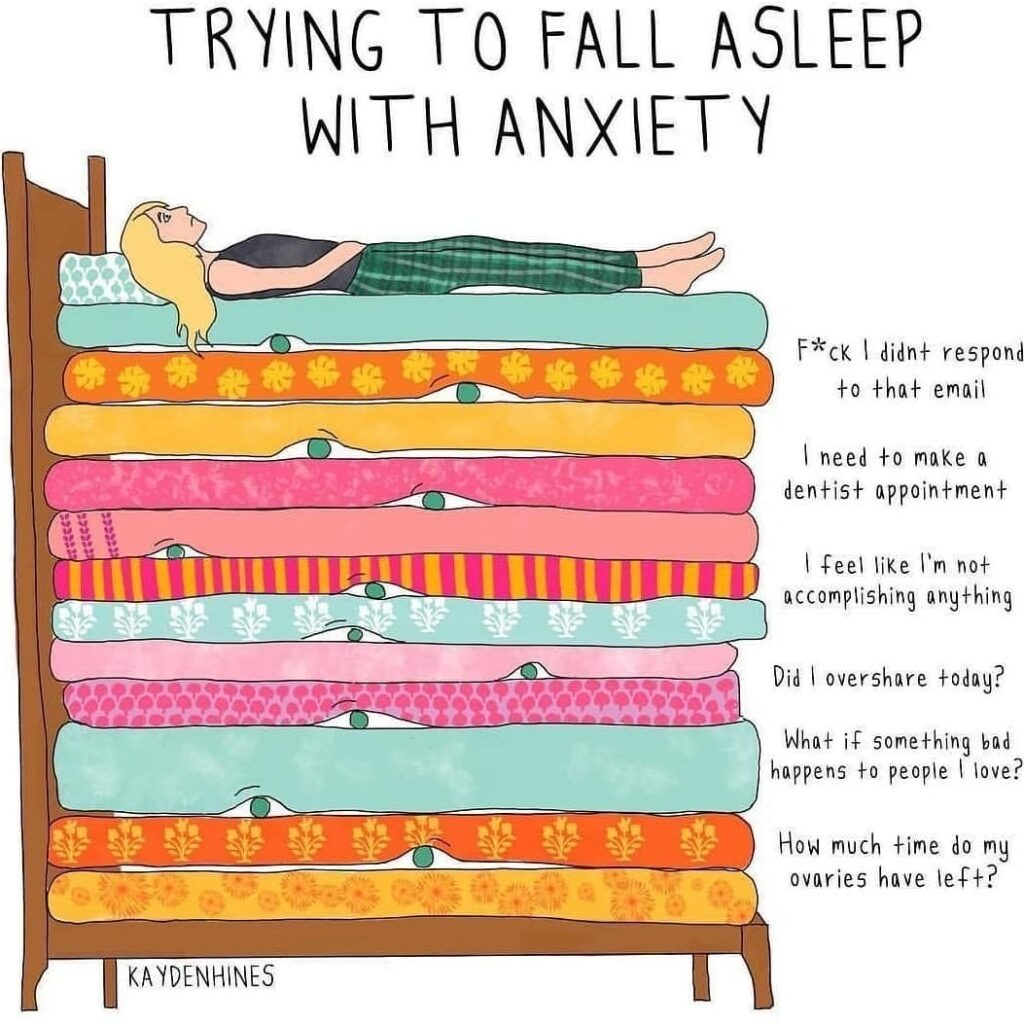Sleep is often elusive, particularly for parents of young children, or those with anxiety. When we are tired, we tend to be cranky and emotional. If you struggle to sleep, you may find yourself putting off going to bed, or lying in bed doing other things like playing on a tablet or phone. Often people feel their thoughts go mad when they try to sleep, as they have been so busy during the day, this is the first time they relax and allow themselves space to think. Below are a few tips to help you get the sleep you need.

What to do…
- Learn to nap. Napping is a skill that takes practice, being able to shut down your brain and body quickly to sleep for a short time can be very useful, particularly if you have small children. Also notice how the length of you nap affects whether you feel groggy or refreshed when you wake up.
- Use relaxation techniques to get to sleep. Meditation can be very useful to relax yourself and encourage sleep. For example, work your way from your feet up to your head, tensing and relaxing your muscle groups as you go. Then notice all of your senses, what can you hear, see (hopefully nothing), smell, taste and feel? Finally focus on your breathing and nothing else, feel the air enter and exit your lungs. Acknowledge any thoughts that come to you during this, then let them pass you by. This will take some practice. If you find there are too many thoughts to ignore, try the point below.
- Keep a notebook beside your bed. You can write down anything that swirls around in your head while you are trying to get to sleep. This should get it out of your head and remove the sleep obstacle.
- Learn how many hours of sleep you need to function for the day. If you know you need seven hours a night, try to make that up during the day if you can’t get it all at once.
- Look at your sleeping environment. Do you have the TV on? Do you eat in bed? Try to keep your bedroom as a place just for sleeping, this will help your brain make the subconscious association when you get in to bed.
- Reduce screen time before sleeping. The blue light given off by most electronic devices stimulates the release of a hormone to keep us awake. If you give yourself some screen free time before bed you are likely to go to sleep more easily.
What not to do…
- Drink coffee or tea before bed.
- Put off going to bed.
- Let your brain associate bed with other activities such as watching TV or playing on your phone.
- Be influenced by others, if you have a sleep technique that works, use it no matter what someone else recommends.
Always remember…
Everything feels so much worse when you’re tired. Listen to your body and try to give it the environment it needs to get that much needed rest, this includes letting your brain process your thoughts and feelings so it can relax.